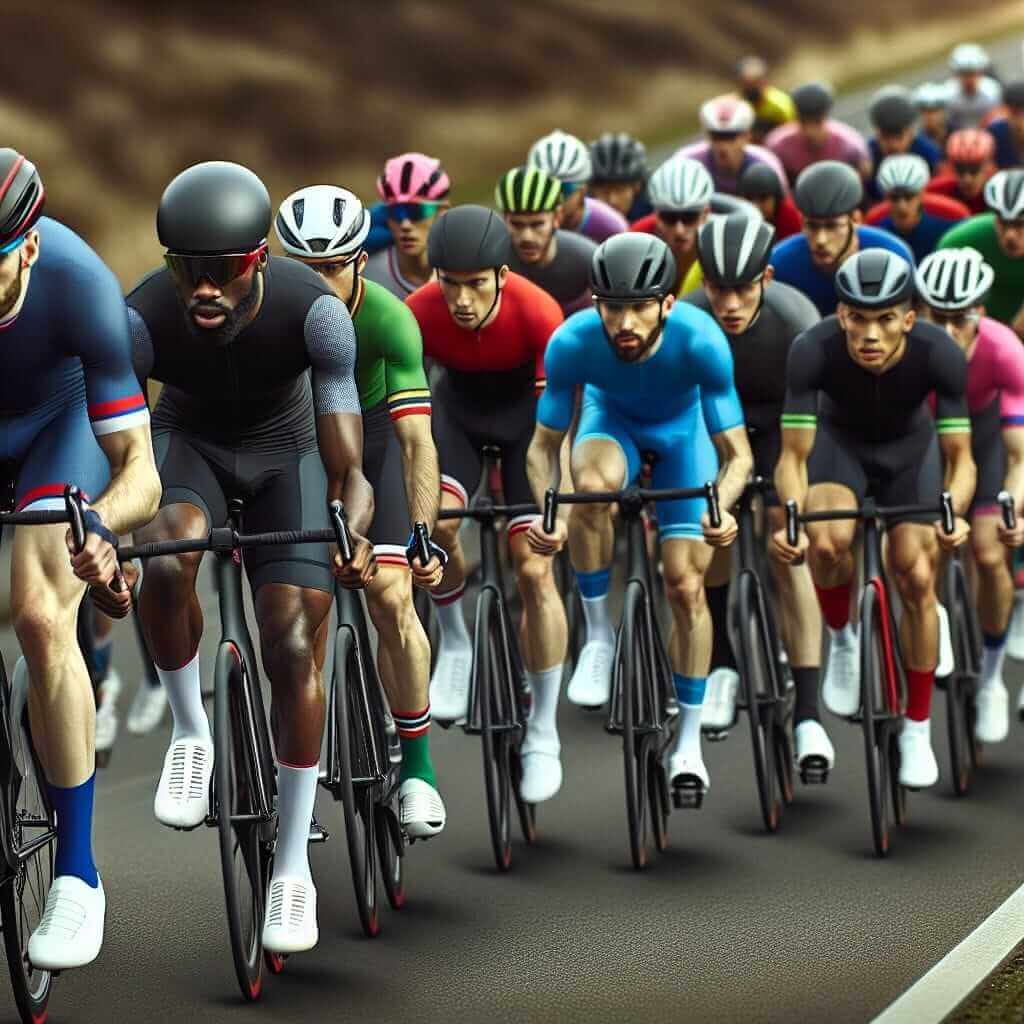As an experienced IELTS instructor, I often encounter students who underestimate the power of specific vocabulary. Trust me, a well-placed technical term in your speaking or writing can significantly impress your examiner and demonstrate a nuanced understanding of the English language. Today, we’ll focus on “cycling,” a topic frequently appearing in IELTS listening sections, reading passages, and even speaking prompts. Let’s break down the essential vocabulary that will help you ride confidently through your IELTS exam.
Essential Cycling Vocabulary for IELTS
Knowing the right terms can be the difference between a shaky response and a confident answer. Here’s a breakdown of vocabulary divided into key categories:
Bike Components
- Frame: The core structure of a bicycle, typically made of aluminum or carbon fiber.
- Example: “The lightweight frame of a road bike allows for faster speeds.”
- Handlebars: The steering mechanism of a bicycle.
- Example: “He gripped the handlebars tightly as he navigated the busy intersection.”
- Saddle: The seat of a bicycle.
- Example: “Many cyclists find that a padded saddle provides increased comfort on long rides.”
- Gears: A system of cogs and chains that allows cyclists to adjust the resistance of pedaling.
- Example: “Using a lower gear can help you climb steep hills more easily.”
- Brakes: Mechanisms for slowing down or stopping a bicycle.
- Example: “Always check your brakes before embarking on a bike ride.”
- Tires: Rubber coverings on the wheels that provide grip and absorb shock.
- Example: “Mountain bikes typically have wider tires with deeper treads for off-road riding.”
Cycling Actions and Techniques
- Pedal: To propel a bicycle forward using the feet.
- Example: “To increase speed, you need to pedal faster.”
- Brake: To slow down or stop a bicycle.
- Example: “Remember to brake gently when approaching a corner.”
- Shift gears: To change the resistance of pedaling using the gear system.
- Example: “As the road inclined, she shifted gears to make it easier to climb.”
- Draft: To cycle closely behind another rider to reduce wind resistance.
- Example: “Professional cyclists often draft behind each other to conserve energy.”
- Cornering: The action of navigating a turn on a bicycle.
- Example: “Proper cornering technique is crucial for maintaining balance and speed.”
Cycling Disciplines
- Road Cycling: Cycling on paved roads, often in competitive races or long-distance rides.
- Example: “The Tour de France is one of the most famous road cycling events in the world.”
- Mountain Biking: Cycling off-road, typically on trails with varying terrain.
- Example: “Mountain biking requires a durable bike and the ability to handle challenging conditions.”
- BMX: A type of cycling that involves riding and performing tricks on specialized bikes.
- Example: “BMX riders are known for their acrobatic stunts and technical skills.”

Applying Your Knowledge: IELTS Examples
- Listening: An audio clip might discuss the benefits of different bicycle frames. Understanding the term “frame” and its properties (lightweight, durable) will be crucial for answering questions correctly.
- Reading: A passage might detail the history of the Tour de France. Familiarity with vocabulary like “road cycling,” “drafting,” and “peloton” (a group of cyclists) would enhance comprehension.
- Speaking: In Part 2, you might be asked to describe a memorable bike ride. Using specific terms like “shifted gears” or “cornering” instead of general words like “changed speed” or “turning” will showcase a higher level of vocabulary.
Tips for Success
- Context is Key: Don’t just memorize words in isolation. Try to understand their meaning within the context of cycling.
- Active Use: Incorporate these words into your speaking and writing practice. The more you use them, the more natural they will sound.
- Expand Your Knowledge: Explore cycling websites, magazines, or documentaries to further enrich your vocabulary.
Remember, mastering specific vocabulary is like adding extra gears to your IELTS preparation. It allows you to express yourself with precision and demonstrate a genuine command of the English language. Now, get out there and conquer your IELTS exam—one word at a time!